 Ever wondered what your life would be if you married your high school sweetheart, or that person you met on the train in Europe? First-time author (and game designer) Holly Gramazio takes this speculation to the furthest, and most enjoyable, extreme, with her debut novel, The Husbands. A woman returns home to find she has a husband waiting, surprising given that when she left the house, she was single. Even more surprising, she soon finds the husband can be exchanged simply by having him pop up into the attic, for any arbitrary reason. One goes up, another comes down. I love this book on every conceivable level. It is flawlessly executed, and an enjoyable read throughout. Click to Read More...
Ever wondered what your life would be if you married your high school sweetheart, or that person you met on the train in Europe? First-time author (and game designer) Holly Gramazio takes this speculation to the furthest, and most enjoyable, extreme, with her debut novel, The Husbands. A woman returns home to find she has a husband waiting, surprising given that when she left the house, she was single. Even more surprising, she soon finds the husband can be exchanged simply by having him pop up into the attic, for any arbitrary reason. One goes up, another comes down. I love this book on every conceivable level. It is flawlessly executed, and an enjoyable read throughout. Click to Read More...
Book Notes
Sun, 30 Jun 2024
Sun, 17 Mar 2024
 In his book, The Creative Act, Rick Rubin eschews celebrity name-dropping or gossipy story-telling about the staggering number of famous musical acts he has produced in the past four decades. Rather he dons the persona of the wise sage, an Alan Watts of creativity offering zen-like meditative reflections on summoning the muse. And just when you think each chapter is about to end, he serves up yet one more aphorism for ya. What can we learn here? Click to Read More... Click to Read More...
In his book, The Creative Act, Rick Rubin eschews celebrity name-dropping or gossipy story-telling about the staggering number of famous musical acts he has produced in the past four decades. Rather he dons the persona of the wise sage, an Alan Watts of creativity offering zen-like meditative reflections on summoning the muse. And just when you think each chapter is about to end, he serves up yet one more aphorism for ya. What can we learn here? Click to Read More... Click to Read More...
Sun, 19 Feb 2023
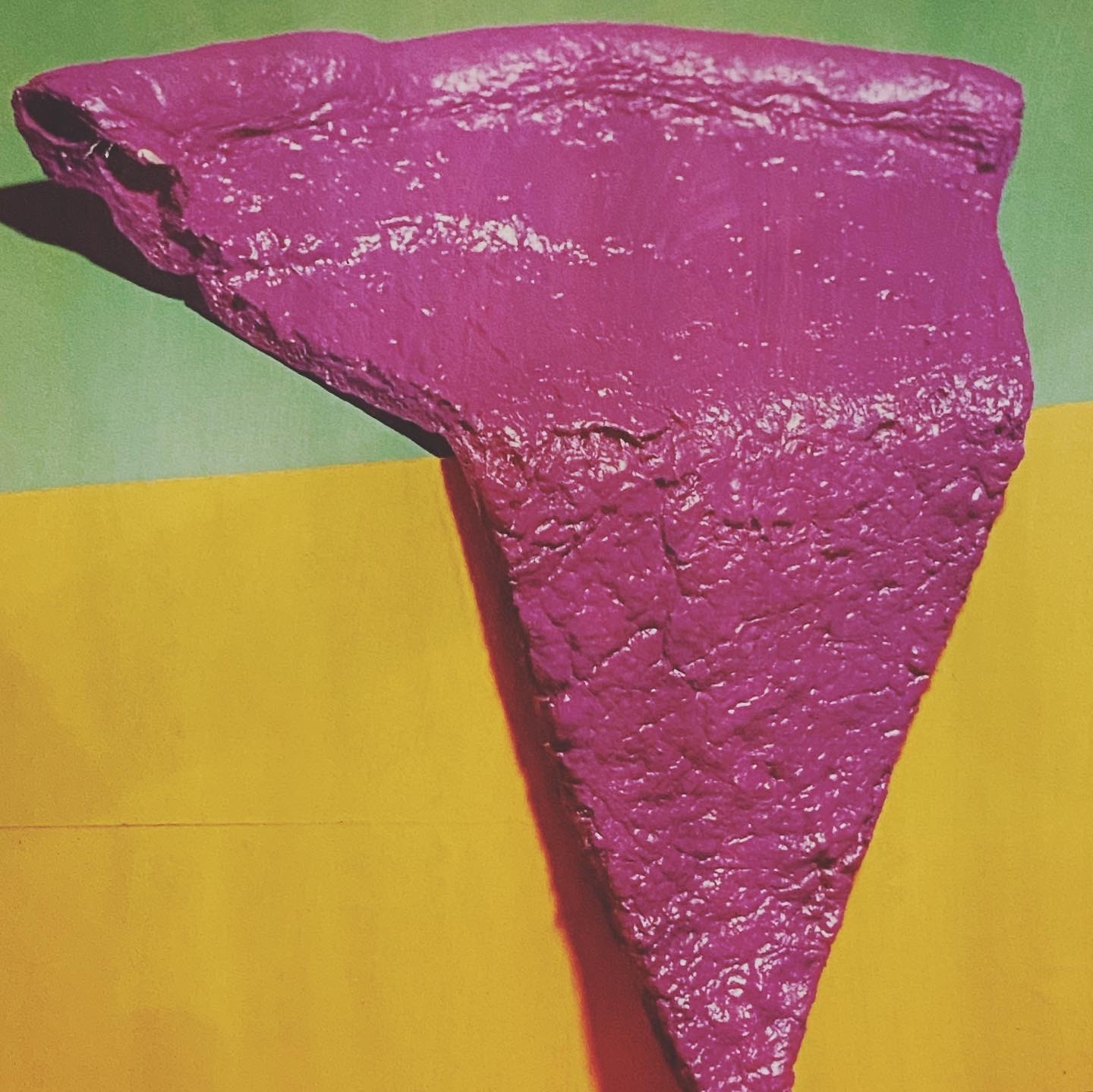 Sometime ago, somehow,, we were implicitly taught that capitalism would
solve all our problems, that we could rely on the free market economy
to supply whatever we need. Personal responsibility is not required as long as you
kept your checkbook open.
But I am driving down the road with a bag of Taco Bell grub and I am eating a taco but I am
not tasting the taco at all. Like there is nothing appealing about this food whatsoever,
but I was hungry and I had money, and Taco Bell could sell me a bag of food.
Taste, or even nutrition, has little to do with it. I am eating capitalism.
The message of naturalist Wendell Berry, collected in his lifelong book essays,
is that this trust in capitalism has led us astray, estranged from the land that is our collective home.
Click to Read More...
Sometime ago, somehow,, we were implicitly taught that capitalism would
solve all our problems, that we could rely on the free market economy
to supply whatever we need. Personal responsibility is not required as long as you
kept your checkbook open.
But I am driving down the road with a bag of Taco Bell grub and I am eating a taco but I am
not tasting the taco at all. Like there is nothing appealing about this food whatsoever,
but I was hungry and I had money, and Taco Bell could sell me a bag of food.
Taste, or even nutrition, has little to do with it. I am eating capitalism.
The message of naturalist Wendell Berry, collected in his lifelong book essays,
is that this trust in capitalism has led us astray, estranged from the land that is our collective home.
Click to Read More...
Sat, 21 Jan 2023
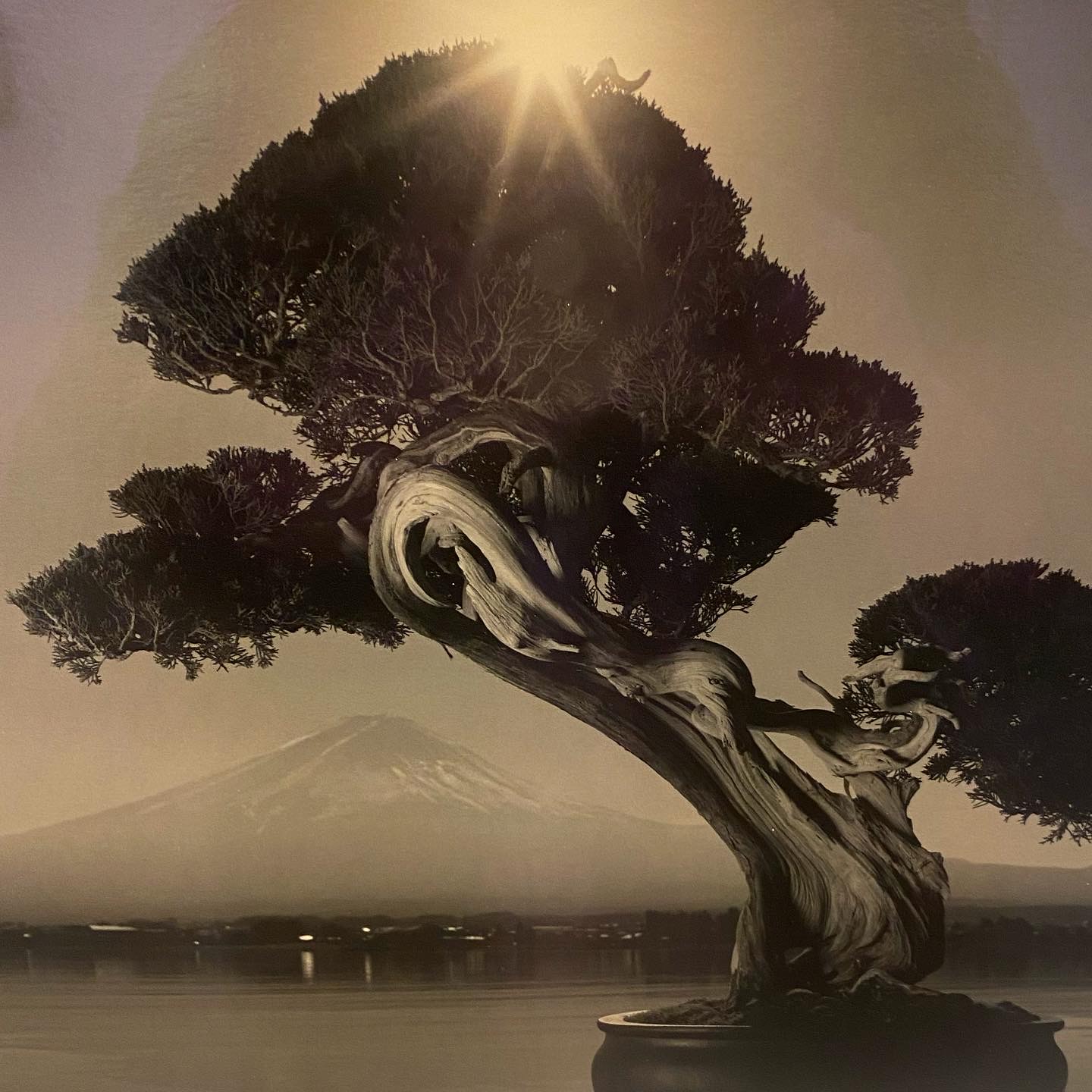 It was those who were the most ruthless, with the least scruples, who survived the German concentration camps of World War II. Others gave up, sunk into apathy, and slid into disrepair and inevitable death. Those who chose to find meaning -- any meaning -- found will to go on day-by-day. Suffering is inevitable. It is how you choose to respond to external hardships that make you who you are, argued Viktor Frankl, in his account of being a WWII prisoner in Auschwitz. Click to Read More...
It was those who were the most ruthless, with the least scruples, who survived the German concentration camps of World War II. Others gave up, sunk into apathy, and slid into disrepair and inevitable death. Those who chose to find meaning -- any meaning -- found will to go on day-by-day. Suffering is inevitable. It is how you choose to respond to external hardships that make you who you are, argued Viktor Frankl, in his account of being a WWII prisoner in Auschwitz. Click to Read More...
Sun, 06 Nov 2022
 When you wake in the morning, reflect on the day ahead. Know that you will meet people who will be busybodies, ungrateful, arrogant, deceitful, envious, selfish, wrote Marcus Aurelius in Meditations. Needy people zap your energy. Social media zap your energy. Stop doing things that do not have a clear purpose, he advised.
Click to Read More...
When you wake in the morning, reflect on the day ahead. Know that you will meet people who will be busybodies, ungrateful, arrogant, deceitful, envious, selfish, wrote Marcus Aurelius in Meditations. Needy people zap your energy. Social media zap your energy. Stop doing things that do not have a clear purpose, he advised.
Click to Read More...
Wed, 01 Jun 2022
 In their brevity and terseness, the short stories of Raymond Carver suggest a darkness inarticulated, a state of perpetual unease that mapped very well into those last few years before the Internet, when answers did not arrive instantly through text or Google. This post will (eventually) summarize each one of the 37 short stories in his last collection, published in 1989. I will not comment on the stories here, but just try to capture, by plot summation, the mysterious precision of Carver, at least at a surface level.
Click to Read More...
In their brevity and terseness, the short stories of Raymond Carver suggest a darkness inarticulated, a state of perpetual unease that mapped very well into those last few years before the Internet, when answers did not arrive instantly through text or Google. This post will (eventually) summarize each one of the 37 short stories in his last collection, published in 1989. I will not comment on the stories here, but just try to capture, by plot summation, the mysterious precision of Carver, at least at a surface level.
Click to Read More...
Sun, 10 Oct 2021
![]() From small things, big things one day come, so argues James Clear in his book, Atomic Habits. Making major changes in your life require not so much great upheavals to the daily routine, but rather lots of small, concrete steps in the desired direction. Small changes in daily habits may not seem significant, but they are the compound interest of self-improvement -- or of self-destruction. Click to Read More...
From small things, big things one day come, so argues James Clear in his book, Atomic Habits. Making major changes in your life require not so much great upheavals to the daily routine, but rather lots of small, concrete steps in the desired direction. Small changes in daily habits may not seem significant, but they are the compound interest of self-improvement -- or of self-destruction. Click to Read More...
Sat, 05 Jun 2021
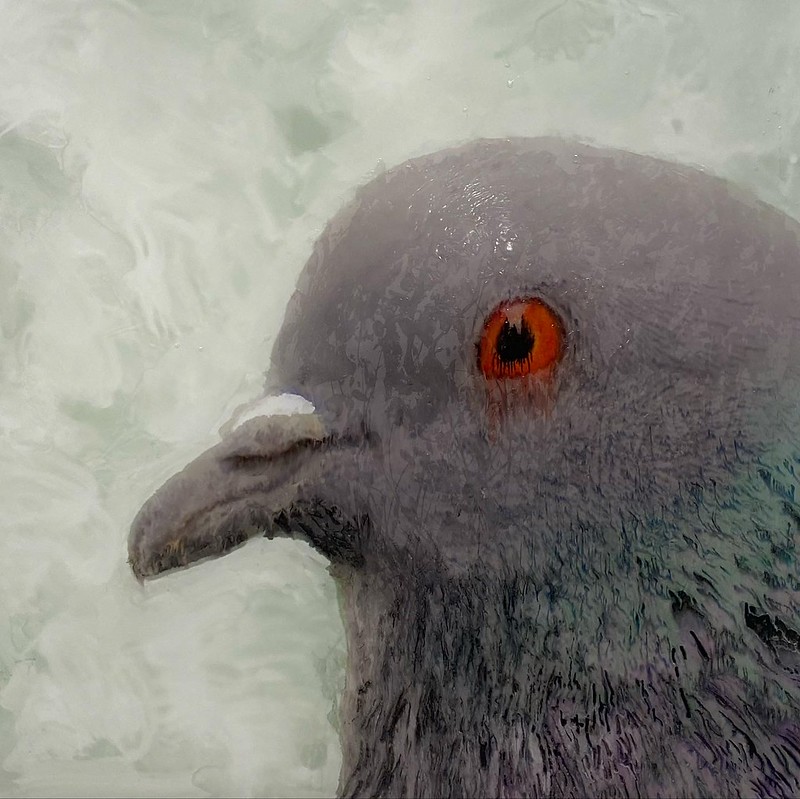 When you are supposed to go up, climb to the top of the highest tower. When you are supposed to go down, go down to the bottom of the deepest well. That was the advice offered by Mr. Honda, the deaf war veteran prophet in The Windup-Bird Chronicle published in 1998 by Japanese novelist Haruki Murakami. Do not resist the flow, but do not move when the flow is not there. And always, always be very aware of water. Click to Read More...
When you are supposed to go up, climb to the top of the highest tower. When you are supposed to go down, go down to the bottom of the deepest well. That was the advice offered by Mr. Honda, the deaf war veteran prophet in The Windup-Bird Chronicle published in 1998 by Japanese novelist Haruki Murakami. Do not resist the flow, but do not move when the flow is not there. And always, always be very aware of water. Click to Read More...
Thu, 27 Feb 2020
 Susan Fowler's "Whistleblower" should be required
reading for any Silicon Valley start-up founder, or any company exec for that matter.
The sexism/misogyny Fowler experienced at Uber and elsewhere derailed her career, multiple times.
But it also damaged these organizations as well,
in terms of lost talent and, later on, public goodwill. Click to Read More...
Susan Fowler's "Whistleblower" should be required
reading for any Silicon Valley start-up founder, or any company exec for that matter.
The sexism/misogyny Fowler experienced at Uber and elsewhere derailed her career, multiple times.
But it also damaged these organizations as well,
in terms of lost talent and, later on, public goodwill. Click to Read More...
Tue, 18 Feb 2020
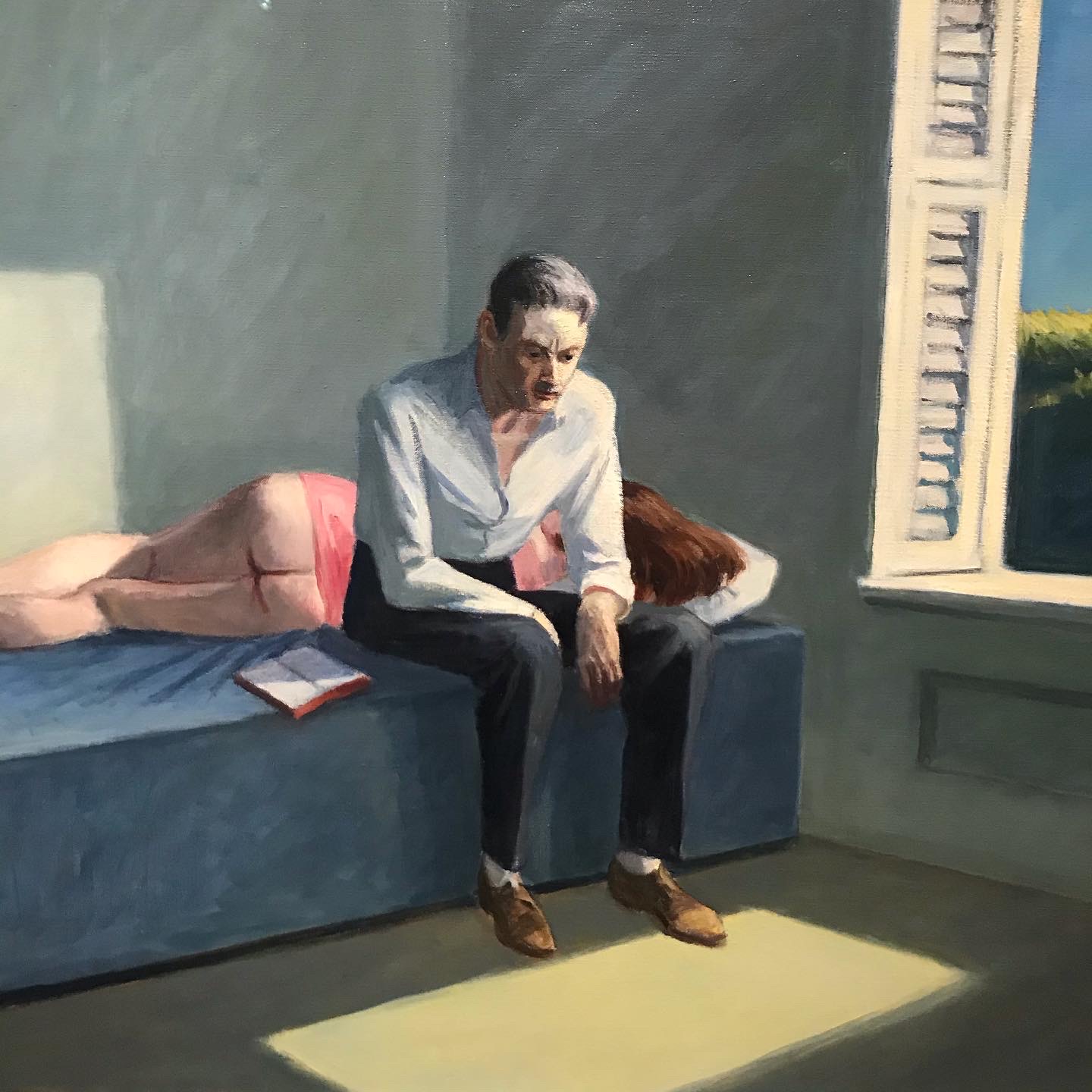 In 2019, I learned that everyone falls in love with the daughter of the shoemaker, even if they fear her a bit. That the technological advancement depends of a civilization on its ability to control microdimensions. I learned what automobiles the members Pink Floyd drove and about the English houses
in which they lived, circa 1968. That people who bond in youth can stay friends in the ensuing decades of adulthood, even as they grow apart. That the success of music depends a great deal on where it is played, and that the Beastie Boys really were in the center of things during the birth of Hip-Hop in the early 1980s New York. Click to Read More...
In 2019, I learned that everyone falls in love with the daughter of the shoemaker, even if they fear her a bit. That the technological advancement depends of a civilization on its ability to control microdimensions. I learned what automobiles the members Pink Floyd drove and about the English houses
in which they lived, circa 1968. That people who bond in youth can stay friends in the ensuing decades of adulthood, even as they grow apart. That the success of music depends a great deal on where it is played, and that the Beastie Boys really were in the center of things during the birth of Hip-Hop in the early 1980s New York. Click to Read More...
Wed, 22 Jan 2020
 Old age is bullshit, Cicero said, sorta. Growing old is inevitable. How you live out
your senior years is entirely up to you, Roman statesman Marcus Tullius Cicero
argued in his Jesus-era self-help booklet, How to Grow Old.
There are many who grow old without complaint. Those who are good-tempered in youth and
middle age will take that with them into their senior years. And those who are irritable
now will continue to be so into their own golden years. Age has little with any of that. Click to Read More...
Old age is bullshit, Cicero said, sorta. Growing old is inevitable. How you live out
your senior years is entirely up to you, Roman statesman Marcus Tullius Cicero
argued in his Jesus-era self-help booklet, How to Grow Old.
There are many who grow old without complaint. Those who are good-tempered in youth and
middle age will take that with them into their senior years. And those who are irritable
now will continue to be so into their own golden years. Age has little with any of that. Click to Read More...
Thu, 14 Nov 2019
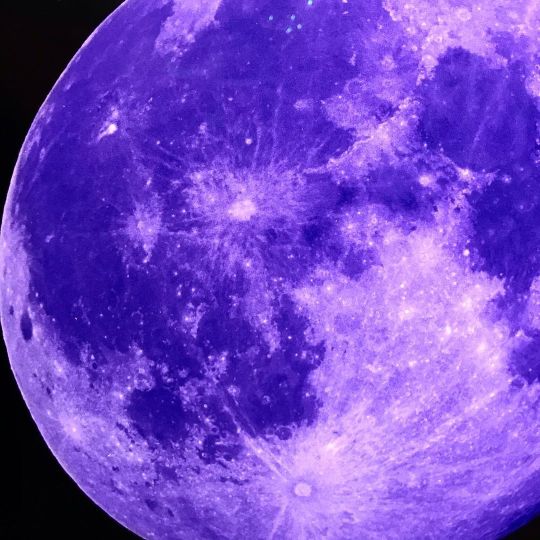 Appropriately enough, I picked up a worn paperback copy of Robert A. Heinlein's 1951 science fiction novel "Between Planets" in a book flea market while traveling around, undocumented, in Lima, Peru. Published in 1951, this slim volume, presumably aimed at the young adult market, grappled with serious questions that one can have about loyalty and freedom. It is still timely, or, rather to say, timeless. Click to Read More...
Appropriately enough, I picked up a worn paperback copy of Robert A. Heinlein's 1951 science fiction novel "Between Planets" in a book flea market while traveling around, undocumented, in Lima, Peru. Published in 1951, this slim volume, presumably aimed at the young adult market, grappled with serious questions that one can have about loyalty and freedom. It is still timely, or, rather to say, timeless. Click to Read More...
Sat, 22 Jun 2019
 Lena was walking to Mississippi, pregnant, all the way from Alabama, with 35 cents to her name. Her mother died when she was young, then her father, so she went to live with her brother, senior by 20 years, and his wife, who was always pregnant, or recovering from pregnancy, it seemed. They lived in a logging town. Lena stayed in a lean-to out back. Within a few years, she got pregnant by some local Sawdust Casanova in the words of her brother. So she went to go find the father, Lucas, who, she thought, would immediately take her in when he saw her.
Click to Read More...
Lena was walking to Mississippi, pregnant, all the way from Alabama, with 35 cents to her name. Her mother died when she was young, then her father, so she went to live with her brother, senior by 20 years, and his wife, who was always pregnant, or recovering from pregnancy, it seemed. They lived in a logging town. Lena stayed in a lean-to out back. Within a few years, she got pregnant by some local Sawdust Casanova in the words of her brother. So she went to go find the father, Lucas, who, she thought, would immediately take her in when he saw her.
Click to Read More...
Fri, 01 Feb 2019
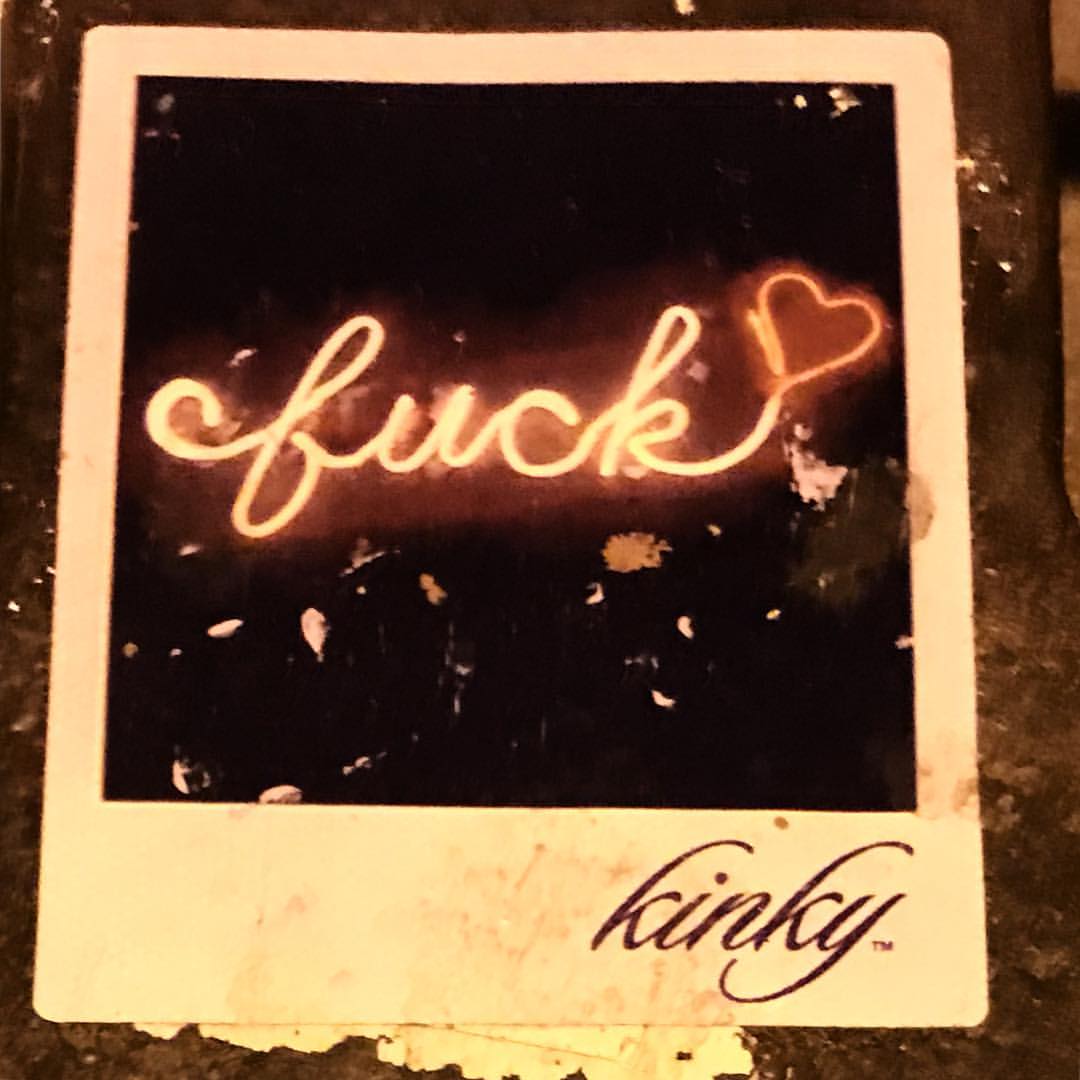 The inherent nature of addiction memoirs is that the part where the addiction is acquired is always more fun to recount (and read) than the part where the memoirist makes the slow, painful slog to recovery. Shenanigans are always more exhilarating than the reckonings that follow. But sometimes, lives do not go down this rutted pathway so easily, as two otherwise widely-divergent life accountings I just read have attested to: A memoir from Cat Marnell and a biography of George Jones. Click to Read More...
The inherent nature of addiction memoirs is that the part where the addiction is acquired is always more fun to recount (and read) than the part where the memoirist makes the slow, painful slog to recovery. Shenanigans are always more exhilarating than the reckonings that follow. But sometimes, lives do not go down this rutted pathway so easily, as two otherwise widely-divergent life accountings I just read have attested to: A memoir from Cat Marnell and a biography of George Jones. Click to Read More...
Wed, 31 Oct 2018
 The Tao has two halves, it would seem. The chapters in Tao Te Ching, of the Book of the Way, alternate
between those describing the internal workings of the Tao itself - the unseeable, unknowable - and
those describing how the external world works. The Tao Te Ching, which appeared in the 6th Century
B.C., could have been authored by Laozi or it could be the work of many hands. Either way, the principles it offers about the world feel lucid and universally applicable.
Click to Read More...
The Tao has two halves, it would seem. The chapters in Tao Te Ching, of the Book of the Way, alternate
between those describing the internal workings of the Tao itself - the unseeable, unknowable - and
those describing how the external world works. The Tao Te Ching, which appeared in the 6th Century
B.C., could have been authored by Laozi or it could be the work of many hands. Either way, the principles it offers about the world feel lucid and universally applicable.
Click to Read More...
Wed, 19 Sep 2018
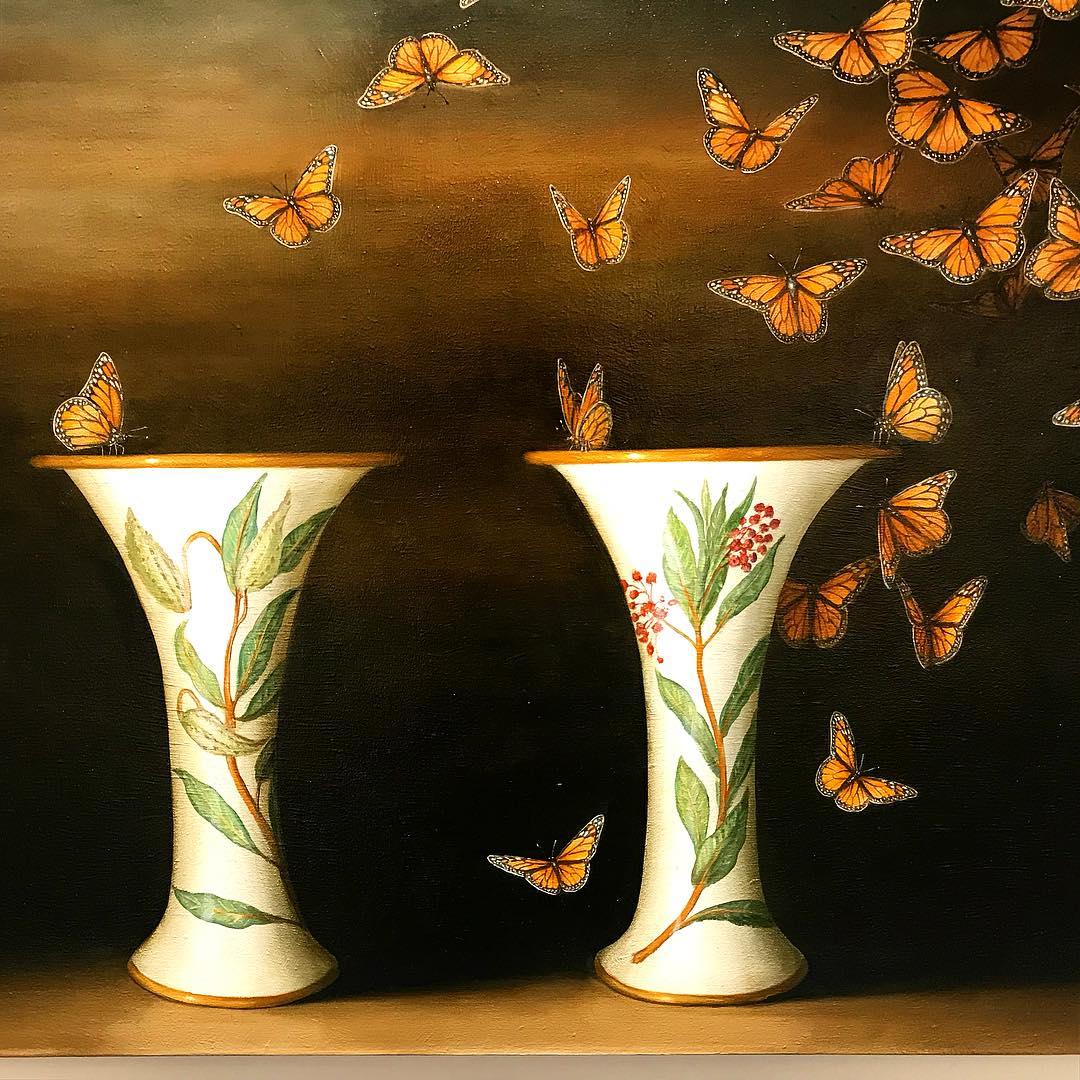 I see the appeal of taking a year off to sleep, just to sleep. Nothing but slumber. As many hours of the day as possible. When I was a kid, I asked my Dad what his favorite thing to do was. "Sleep," he replied. Perhaps he was just tired that day, who knows?
But 40 years later, I feel this. Tremendously.
I see the appeal of taking a year off to sleep, just to sleep. Nothing but slumber. As many hours of the day as possible. When I was a kid, I asked my Dad what his favorite thing to do was. "Sleep," he replied. Perhaps he was just tired that day, who knows?
But 40 years later, I feel this. Tremendously.
If the deep slumber of a single night (and perhaps much of the following day) offers both peace and renewal, then certainly a year's worth of solid (chemically-assisted) sleep would constitute a complete rebirth of sorts, right? So goes the line of reasoning that propels the protagonist in Ottessa Moshfegh's "My Year of Rest and Relaxation." She quits her job, barricades herself in her NYC apartment, finds herself a prescription-happy shrink, all with the full intent of sleeping through an entire year and emerging as an entirely new person. Click to Read More...
Sun, 06 May 2018
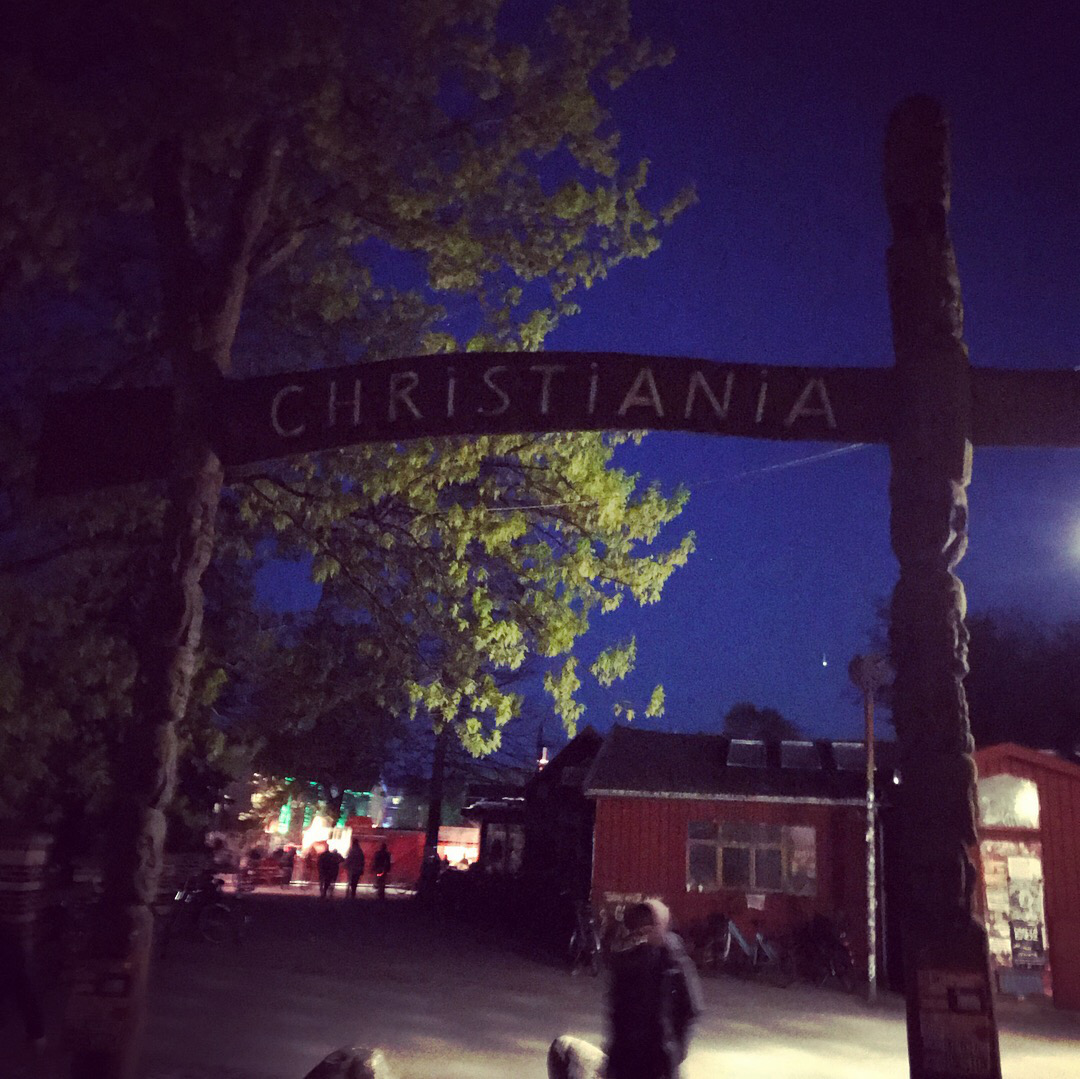 When Telemachus goes to learn what happened to his father Odysseus, he visits a series of stately manors and palaces of powerful families. These were the days, back even before the Greek dark ages, when the Mycenean Elite dominated regions, family-by-family.
When Telemachus goes to learn what happened to his father Odysseus, he visits a series of stately manors and palaces of powerful families. These were the days, back even before the Greek dark ages, when the Mycenean Elite dominated regions, family-by-family.
For Odysseus, these land lords came in one of two varieties: one welcomed strangers into their homes; and the others were lawless aggressors... Click to Read More...
Wed, 28 Mar 2018
 WTF is up with this? Mary Shelley, 18, invented the Science Fiction genre in a single night, writing what would be the origins of "Frankenstein" in an evening parlor game led by Lord Byron; About 27 years later, a daughter of Byron's, Ada Lovelace, published the world's first computer program.
Both acts, which arguably modern civilization rests upon as much as anything, were, in a manner of speaking, influenced by Byron. A fearsome and fearful influence, he turned out to be.
Click to Read More...
WTF is up with this? Mary Shelley, 18, invented the Science Fiction genre in a single night, writing what would be the origins of "Frankenstein" in an evening parlor game led by Lord Byron; About 27 years later, a daughter of Byron's, Ada Lovelace, published the world's first computer program.
Both acts, which arguably modern civilization rests upon as much as anything, were, in a manner of speaking, influenced by Byron. A fearsome and fearful influence, he turned out to be.
Click to Read More...
Sun, 18 Feb 2018
 What first set humankind apart from other creatures was the ability to make meaning, argued Lewis Mumford, in his 1967 book "The Myth and the Machine Volume One: Technics and Human
Development." Born from dream and excess psychic energy, meaning made the universe around us,
helping us not only to describe what was in front of us, but what could be, or what might have been.
Philosopher Max Muller called it the Fundamental Metaphor, a "universal mythology, this flowing of
our spirit into objective chaos and recreating it in our own image."
Click to Read More...
What first set humankind apart from other creatures was the ability to make meaning, argued Lewis Mumford, in his 1967 book "The Myth and the Machine Volume One: Technics and Human
Development." Born from dream and excess psychic energy, meaning made the universe around us,
helping us not only to describe what was in front of us, but what could be, or what might have been.
Philosopher Max Muller called it the Fundamental Metaphor, a "universal mythology, this flowing of
our spirit into objective chaos and recreating it in our own image."
Click to Read More...
Thu, 08 Feb 2018
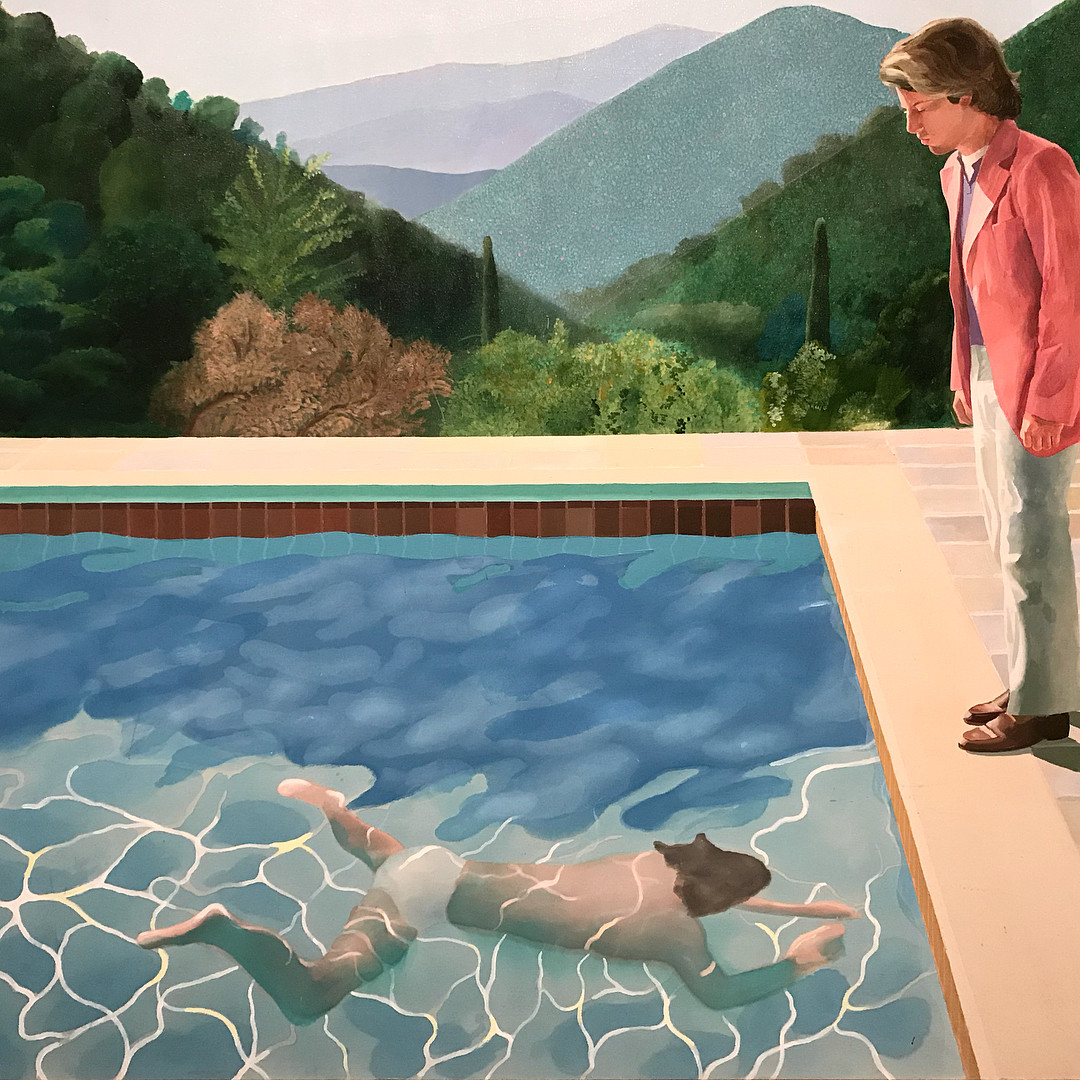 The collection of essays that make up "The White Album," Joan Didion asserts almost immediately, are about the collapse of meaning, about the dissolution of the narratives told to guide us through life. In the era when she penned them, the late 1960s and early 1970s, western culture itself was shifting from order to disorder, seemingly. The entrenched powers of the old were giving way to the strength of the young ("They got the guns, but we got the numbers," the Lizard King sang at the time). On the personal level, Didion's defense mechanisms were failing as well. So, what is left, this book asks. Click to Read More...
The collection of essays that make up "The White Album," Joan Didion asserts almost immediately, are about the collapse of meaning, about the dissolution of the narratives told to guide us through life. In the era when she penned them, the late 1960s and early 1970s, western culture itself was shifting from order to disorder, seemingly. The entrenched powers of the old were giving way to the strength of the young ("They got the guns, but we got the numbers," the Lizard King sang at the time). On the personal level, Didion's defense mechanisms were failing as well. So, what is left, this book asks. Click to Read More...
Mon, 11 Dec 2017
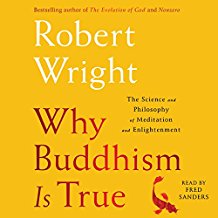 We may think we see the world around us clearly, but our view is distorted by the powerfully magnetic influence of natural selection, our genes' insistent push to see everything in terms of passing themselves on to a new generation. "Natural selection didn't design your mind to see the world clearly. It designed your mind to have perceptions and beliefs that would help take care of your genes," Wright writes in his new book, "Why Buddhism is True." Click to Read More...
We may think we see the world around us clearly, but our view is distorted by the powerfully magnetic influence of natural selection, our genes' insistent push to see everything in terms of passing themselves on to a new generation. "Natural selection didn't design your mind to see the world clearly. It designed your mind to have perceptions and beliefs that would help take care of your genes," Wright writes in his new book, "Why Buddhism is True." Click to Read More...
Thu, 19 Feb 2015
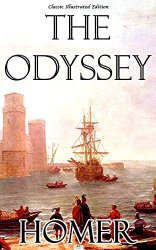 Young prince Telemachus was hanging around the fam's castle, increasingly fed up with all these sycophantic suitors sucking up to Mom, wearing down his long-lost father's riches with all their feasting, dancing and having their hands washed by his family's servants. Click to Read More...
Young prince Telemachus was hanging around the fam's castle, increasingly fed up with all these sycophantic suitors sucking up to Mom, wearing down his long-lost father's riches with all their feasting, dancing and having their hands washed by his family's servants. Click to Read More...
Wed, 16 Jul 2014
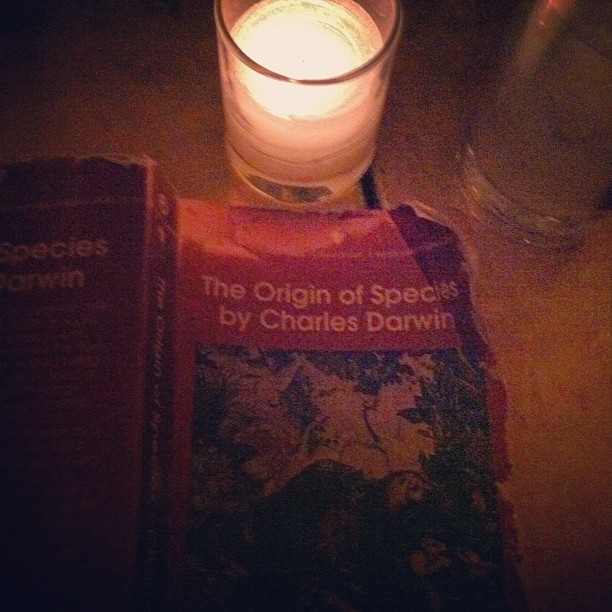 Sometimes a piece of writing so closely describes the truth, that it itself becomes the truth. Charles Darwin's " On the Origin of Species," first published in 1859, made its argument so thoroughly, so absolutely, it literally willed evolution into being in the human consciousness. Click to Read More...
Sometimes a piece of writing so closely describes the truth, that it itself becomes the truth. Charles Darwin's " On the Origin of Species," first published in 1859, made its argument so thoroughly, so absolutely, it literally willed evolution into being in the human consciousness. Click to Read More...
Sat, 17 May 2014
 Eudora Welty's short story "Old Mr. Marblehall" is about a man who lives two completely separate lives. In each life, he has a wife and a young son. One family lives on the one side of Natchez, Mississippi; the other family lives in the opposite side of Natchez. Neither one is aware of the other. Click to Read More...
Eudora Welty's short story "Old Mr. Marblehall" is about a man who lives two completely separate lives. In each life, he has a wife and a young son. One family lives on the one side of Natchez, Mississippi; the other family lives in the opposite side of Natchez. Neither one is aware of the other. Click to Read More...
Wed, 20 Jul 1994
 Summer is the time in Baltimore to think about Charles Bukowski. Heat congeals the air, rendering visible waves of exhaust; the sun fries pigeon droppings in office-building ledges, choking the air ducts with foul aromas; and Pimlico races run 26 minutes apart, leaving time to get another drink and lazily stroll over to the betting window to lay down another $20. This is the time to sit in a dark bar, grab a cold beer, and read yourself some Bukowski.
Summer is the time in Baltimore to think about Charles Bukowski. Heat congeals the air, rendering visible waves of exhaust; the sun fries pigeon droppings in office-building ledges, choking the air ducts with foul aromas; and Pimlico races run 26 minutes apart, leaving time to get another drink and lazily stroll over to the betting window to lay down another $20. This is the time to sit in a dark bar, grab a cold beer, and read yourself some Bukowski.
His readers have become accustomed to this terrain--a landscape of bars, prostitutes, broken people, hatred, dead-end jobs, horse races, bars, chest-thumping misogyny, sad women, poker games, failed writers, irate landladies, bars, anonymous death, sweaty sex. Click to Read More...